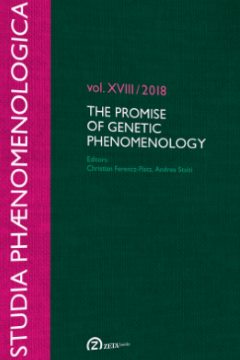Roman Ingarden: phénoménologie génétique et ontologie réaliste
pp. n/a
Abstract
Roman Ingarden, one of Husserl’s most gifted students, devoted several thousand pages to the development of an ontological, epistemological, aesthetical and even anthropological framework that would allow him to firmly reject the so-called “idealistic turn” of his master Husserl. This paper aims at reconstructing an often overlooked side of his philosophy: his theory of consciousness and his analysis of the constitutive process involved in sense perception. After emphasizing the distinctive character of Ingarden’s ontological frame and its impact on understanding concepts as fundamental as consciousness or intentionality, this paper tries to sketch Ingarden’s answers to several genetic questions raised by Husserl: the relation between time and consciousness, the nature of the ultimate sense data and the question of motivation.
Publication details
Published in:
Ferencz-Flatz Christian, Staiti Andrea (2018) The promise of genetic phenomenology. Studia Phaenomenologica 18.
Full citation:
Malherbe Olivier (2018) „Roman Ingarden: phénoménologie génétique et ontologie réaliste“. Studia Phaenomenologica 18, n/a.


